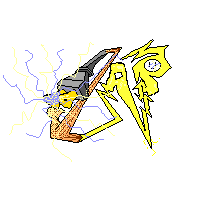I want some advice on writing for a game. I'm currently planning a game, and I have the gameplay more or less figured out, but I'm deciding between two narratives. The main issue in question is the nature of the player character. In one of the ideas, the player character is mysterious, even to the player. To be clear, she doesn't have amnesia, though she pretends to at first. She instead actively keeps her history a secret, including from the player. What I'm wondering here is, would that be satisfying? I can't think of a game where the player character's backstory is known and important, but kept a secret from the player. So basically, I want to know if you think the player would feel cheated or misled in a bad way by this sort of twist. If so, why, and do you think anything could be done to mitigate that feeling?
Thank you for any advice you can provide.







